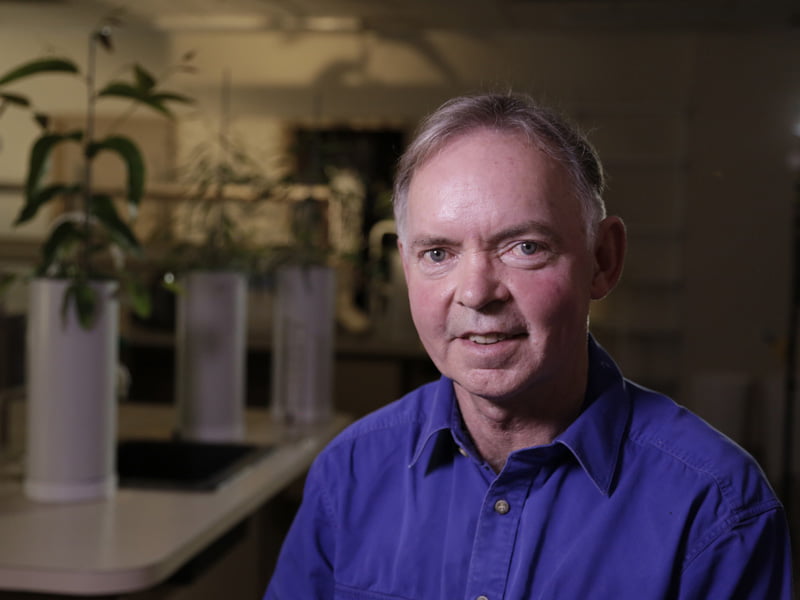A biologist from the Australian National University has been awarded the 2015 Prime Minister’s Prize for Science, for work on plant biophysics models that will determine which trees grow faster in a high carbon dioxide world.
Professor Graham Farquhar received his $250,000 prize from Prime Minister Malcolm Turnbull at a gala dinner at Parliament House on Wednesday night, for pioneering research that helped to unlock deep secrets of photosynthesis.
Among other things, Prof Farquhar’s advances have helped innovators and researchers create more water-efficient crops.

Professor Farquhar has also worked on projects to better understand why wind speeds and evaporation rates seem to be slowing under climate change. This is a phenomenon that goes against most climate modelling.
Mr Turnbull has put his own stamp on the science sector’s biggest prize with the awarding of the first Prime Minister’s Prize for Innovation – also worth $250,000 – to Laureate Professor Graeme Jameson from the University of Newcastle for innovative recovery mechanisms that have been used in the mining sector for decades.
Professor Jameson’s technologies use trillions of bubbles to capture coal dust that would otherwise have been wasted, and have transformed the recovery of coal and minerals over the past 30 years.
Prime Minister Malcolm Turnbull said the awards recognised how Australia’s brightest science minds were playing a key role in the nation’s quest to become more agile, innovative and creative.
“The recipients of these prizes are demonstrating the power of scientific discovery and the important role it plays in a modern, prosperous economy,” Mr Turnbull said.
Other Prime Minister’s Prizes for Science winners were:
• Dr Jane Elith—$50 000 Frank Fenner Prize for Life Scientist of the Year.
• Associate Professor Cyrille Boyer —$50 000 Malcolm McIntosh Prize for Physical Scientist of the Year.
• Dr Ken Silburn—$50 000 Prime Minister’s Prize for Excellence in Science Teaching in Secondary Schools.
• Mrs Rebecca Johnson—$50 000 Prime Minister’s Prize for Excellence in Science Teaching in Primary Schools.
Industry, Innovation and Science Minister Christopher Pyne said it was an exciting time to for science in Australia – as the calibre of the winners demonstrated.
“Science is central to our competitiveness, our creativity and our ability as a nation,” Mr Pyne said. “The work that is happening in labs, universities and institutions now will position us to succeed in the years, decades and generations to come.”
Do you know more? Contact James Riley via Email.

